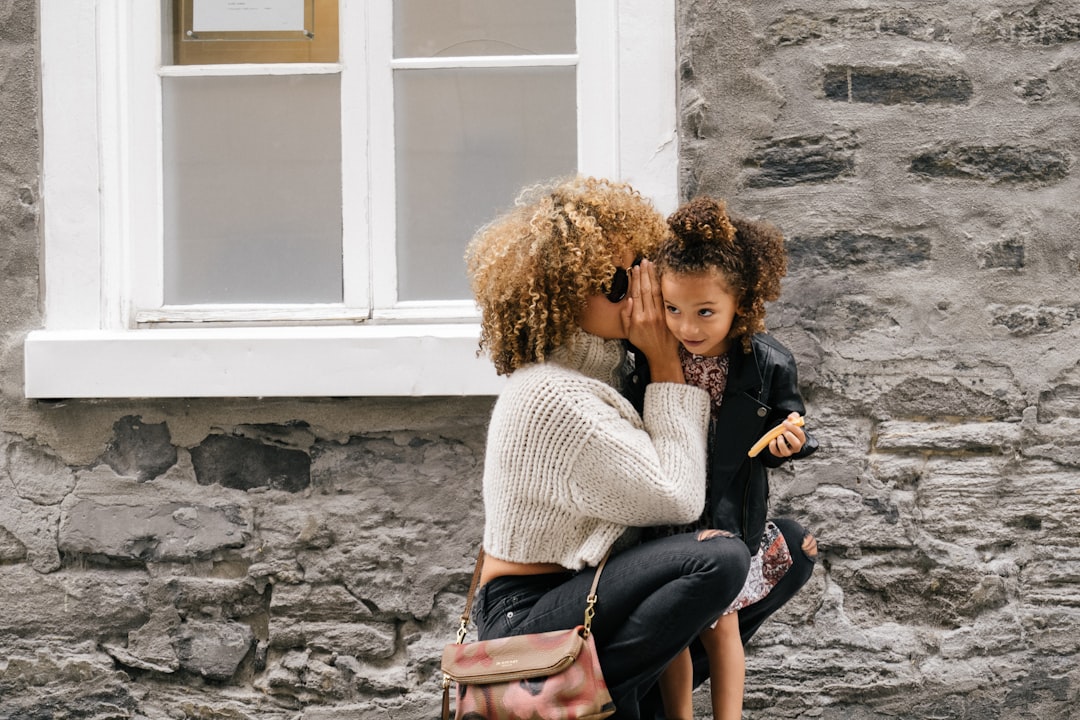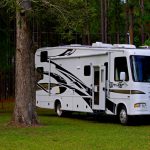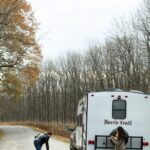Are you ready to hit the open road, embrace adventure, and live life on your own terms? Starting an RV lifestyle can be an exciting and rewarding journey. Whether you dream of full-time RV living or want to enjoy the freedom of weekend getaways, our team at RV Brands™ is here to guide you through the process. From choosing the right RV to planning your routes and finding the best campsites, we'll cover everything you need to know to start your RV lifestyle. So buckle up and let's dive in!
Table of Contents
- Quick Answer
- Quick Tips and Facts
- Choosing the Right RV
- Planning Your Routes
- Finding the Best Campsites
- Packing Essentials for RV Living
- Maintaining Your RV
- RV Insurance and Legal Requirements
- Budgeting for RV Living
- FAQ
- Conclusion
- Useful Links
- Reference Links
Quick Answer
Starting an RV lifestyle involves several key steps:
- Choose the right RV: Consider your needs, preferences, and budget to select the perfect RV for your lifestyle.
- Plan your routes: Use RV trip planning resources to map out your routes, including attractions, campsites, and road conditions.
- Find the best campsites: Research and book campsites in advance to secure the best spots.
- Pack essentials: Make a checklist of RV essentials, including kitchen supplies, bedding, tools, and safety equipment.
- Maintain your RV: Regularly inspect and maintain your RV to ensure it stays in top shape.
- Get the right insurance coverage: Protect your investment with RV insurance tailored to your needs.
- Budget wisely: Plan your finances to make RV living sustainable and enjoyable.
Starting an RV lifestyle is an adventure like no other. With the freedom to travel and explore at your own pace, you'll create memories that last a lifetime.
Quick Tips and Facts
Before we delve into the details, here are some quick tips and interesting facts about starting an RV lifestyle:
- RV living allows you to embrace a minimalist lifestyle and reduce your carbon footprint.
- The 3-3-3 rule is a popular guideline for RV living: travel no more than 300 miles per day, arrive at your campsite by 3 p.m., and stay at least 3 nights in each location.
- Many RVers find creative ways to make money on the road, such as remote work, blogging, or starting a mobile business.
- RV living can be a cost-effective alternative to traditional homeownership, especially if you travel frequently or live in an expensive area.
- The RV community is vibrant and supportive, with plenty of online forums, social media groups, and RV clubs where you can connect with fellow travelers.
Now that you have a taste of the RV lifestyle, let's dive into each step in more detail.
Choosing the Right RV
The first and most crucial step in starting your RV lifestyle is choosing the right RV. With so many options available, it's important to consider your needs, preferences, and budget. Here are some factors to consider:
- RV Type: Decide between motorhomes, towable RVs, or camper vans. Each type has its pros and cons, so choose the one that suits your lifestyle and travel plans.
- Shop Motorhomes on Amazon
- Shop Towable RVs on Amazon
- Shop Camper Vans on Amazon
- Size and Layout: Consider the number of people traveling with you and the amenities you desire. From compact trailers to spacious Class A motorhomes, there's an RV for every need.
- Budget: Determine your budget for purchasing or renting an RV, including maintenance and fuel costs.
- New vs. Used: Decide whether you want to buy a new RV or opt for a used one. Used RVs can offer significant savings but may require more maintenance.
- Research Brands: Explore different RV brands and read reviews from other RVers to find reliable and reputable manufacturers.
- Shop RV Brands on Amazon
- Shop RV Brands on Walmart
- Shop RV Brands on eBay
Remember, choosing the right RV is a personal decision, so take your time and do thorough research before making a purchase.
Planning Your Routes
Once you have your dream RV, it's time to plan your routes and hit the road. Here's how to make the most of your RV adventures:
- Research Destinations: Use online resources, guidebooks, and travel blogs to discover RV-friendly destinations and attractions.
- Choose Campsites: Research and book campsites in advance to secure a spot, especially during peak seasons.
- Shop Camping Gear on Amazon
- Shop Camping Gear on Walmart
- Shop Camping Gear on eBay
- Use RV Trip Planners: Utilize RV trip planning tools and apps to map out your routes, find RV-friendly roads, and discover points of interest along the way.
- Consider Road Conditions: Be aware of any road restrictions or conditions that may affect your RV travel, such as low clearances or weight limits.
Planning your routes in advance allows you to make the most of your time on the road and ensures a smoother travel experience.
Finding the Best Campsites
One of the joys of RV living is staying at beautiful campsites surrounded by nature. Here are some tips for finding the best campsites:
- Research Campgrounds: Use campground directories, online reviews, and RV camping apps to find top-rated campgrounds.
- Consider Amenities: Determine the amenities you need, such as hookups, showers, laundry facilities, or pet-friendly sites.
- Book in Advance: Popular campgrounds fill up quickly, especially during peak seasons, so make reservations well in advance.
- Boondocking: If you prefer a more off-grid experience, consider boondocking on public lands or using apps like Harvest Hosts for unique overnight stays.
Finding the best campsites adds to the overall enjoyment of your RV lifestyle. Remember to respect campground rules and leave no trace behind.
Packing Essentials for RV Living
When it comes to packing for RV living, it's essential to strike a balance between comfort and space efficiency. Here's a list of essentials to consider:
- Kitchen Supplies: Stock up on cookware, utensils, plates, cups, and other kitchen essentials suitable for RV living.
- Bedding: Invest in comfortable bedding, including pillows, sheets, blankets, and mattress toppers.
- Tools and Safety Equipment: Carry a basic toolkit, tire pressure gauge, fire extinguisher, first aid kit, and other essential safety items.
- Shop RV Tools on Amazon
- Shop RV Tools on Walmart
- Shop RV Tools on eBay
- Outdoor Gear: Don't forget camping chairs, outdoor rugs, portable grills, and other gear for outdoor living.
- Shop Outdoor Gear on Amazon
- Shop Outdoor Gear on Walmart
- Shop Outdoor Gear on eBay
Remember to pack light and only bring essentials to maximize your RV's storage space.
Maintaining Your RV
Proper maintenance is key to keeping your RV in top shape and avoiding costly repairs. Here are some maintenance tasks to prioritize:
- Regular Inspections: Conduct routine inspections of your RV's exterior, interior, and mechanical systems to catch any issues early.
- Fluid Checks and Changes: Regularly check and change the oil, coolant, transmission fluid, and other fluids as recommended by the manufacturer.
- Tire Maintenance: Inspect tires for wear and proper inflation, and rotate them regularly to ensure even wear.
- Seal and Roof Maintenance: Check for leaks, reseal seams and windows if needed, and inspect the roof for any damage.
- Appliance Maintenance: Clean and maintain your RV's appliances, such as the refrigerator, stove, and air conditioning unit.
- Winterizing and Dewinterizing: Prepare your RV for winter storage and properly dewinterize it in spring to get it ready for the camping season.
Following a regular maintenance schedule will prolong the life of your RV and help you avoid unexpected breakdowns on the road.
RV Insurance and Legal Requirements
Protecting your RV investment with the right insurance coverage is crucial. Here's what you need to know about RV insurance and legal requirements:
- RV Insurance: RV insurance is similar to auto insurance but offers additional coverage specific to RVs, such as full-time liability, vacation liability, and coverage for personal belongings.
- Shop RV Insurance on Amazon
- Shop RV Insurance on Walmart
- Shop RV Insurance on eBay
- Legal Requirements: Familiarize yourself with the legal requirements for RV living, including driver's license requirements, vehicle registration, and RV length restrictions.
- Additional Coverage: Consider additional coverage options, such as roadside assistance, extended warranties, and coverage for personal belongings.
Consult with an insurance agent specialized in RV insurance to find the best coverage options for your needs.
Budgeting for RV Living
Living the RV lifestyle can be cost-effective, but it's crucial to budget wisely to ensure financial stability. Here are some tips for budgeting for RV living:
- RV Costs: Consider the costs of purchasing or renting an RV, monthly payments, insurance, maintenance, and fuel expenses.
- Campground Fees: Factor in campground fees, which vary depending on location, amenities, and seasonality.
- Fuel Costs: Estimate fuel costs based on your planned routes and the average fuel economy of your RV.
- Food and Supplies: Allocate a budget for groceries, dining out, and other essential supplies.
- Entertainment and Activities: Set aside funds for entertainment, attractions, and activities during your RV adventures.
By creating a realistic budget, you can ensure that your RV lifestyle remains enjoyable and sustainable in the long run.
FAQ
How do I get started in RV life?
To get started in RV life, follow these steps:
- Research and choose the right RV for your needs.
- Plan your routes and research RV-friendly destinations.
- Find and book campsites in advance.
- Pack essential items for RV living.
- Perform regular maintenance on your RV.
- Obtain the necessary insurance coverage.
- Budget wisely for RV living expenses.
What is the 3 3 3 rule for RV living?
The 3 3 3 rule is a guideline for RV living that recommends the following:
- Travel no more than 300 miles per day to avoid fatigue and enjoy the journey.
- Aim to arrive at your campsite by 3 p.m. to secure a spot and have time to set up.
- Stay at least 3 nights in each location to fully explore the area and avoid constant packing and unpacking.
How can I make money living RV life?
There are several ways to make money while living the RV lifestyle, including:
- Remote work: If your job allows, work remotely from your RV.
- Blogging or vlogging: Share your RV adventures through a blog or YouTube channel and monetize it through ads, sponsorships, or affiliate marketing.
- Workamping: Take on temporary jobs at campgrounds, national parks, or other RV-friendly locations in exchange for free or discounted campsites.
- Mobile business: Start a mobile business, such as offering RV maintenance services, selling crafts or products, or providing consulting services.
Is it financially smart to live in an RV?
Living in an RV can be financially smart for several reasons:
- Lower housing costs: RV living can be more affordable than traditional homeownership, especially if you choose to live in your RV full-time.
- Reduced utilities: RVs require less energy and water than traditional homes, leading to lower utility bills.
- Flexibility to travel: RV living allows you to explore different areas without the need for expensive vacations or long-term rentals.
- Minimalist lifestyle: Embracing a minimalist lifestyle in an RV can lead to reduced expenses and a focus on experiences rather than material possessions.
However, it's important to budget wisely, plan for unexpected expenses, and have a sustainable income source to make RV living financially smart in the long term.
Can I live in an RV year-round?
Yes, many people choose to live in an RV year-round. However, it's essential to plan for the challenges of living in an RV during different seasons, such as extreme temperatures, winterization, and access to essential services. Proper insulation, heating systems, and campground amenities can make year-round RV living comfortable.
Conclusion
Starting an RV lifestyle opens up a world of adventure, freedom, and unforgettable experiences. By choosing the right RV, planning your routes, finding the best campsites, and packing essentials, you'll be well-prepared to embark on your RV journey. Remember to prioritize maintenance, obtain the appropriate insurance coverage, and budget wisely to make the most of your RV lifestyle. Whether you choose to travel full-time or enjoy weekend getaways, the RV lifestyle offers endless possibilities. So start your engines, hit the road, and embrace the RV adventure of a lifetime!
Useful Links
- Shop RVs on Amazon
- Shop RVs on Walmart
- Shop RVs on eBay
- Shop Camping Gear on Amazon
- Shop Camping Gear on Walmart
- Shop Camping Gear on eBay
- Shop RV Tools on Amazon
- Shop RV Tools on Walmart
- Shop RV Tools on eBay
- Shop RV Insurance on Amazon
- Shop RV Insurance on Walmart
- Shop RV Insurance on eBay
- Shop Bedding for RVs on Amazon
- Shop Bedding for RVs on Walmart
- Shop Bedding for RVs on eBay
- Shop Kitchen Essentials on Amazon
- Shop Kitchen Essentials on Walmart
- Shop Kitchen Essentials on eBay
- Shop Outdoor Gear on Amazon
- Shop Outdoor Gear on Walmart
- Shop Outdoor Gear on eBay
For more information and resources on RV living, visit the RV Brands™ website.
Reference Links
- RVshare: How to Start Living in an RV Full-Time: The Ultimate Guide
- GoRVing: How to Buy an RV
- RV LIFE: How to Plan Your RV Route and Campgrounds
- Camping World: How to Find the Best Campgrounds and RV Parks
- The Wandering RV: The Best RV Trip Planning Apps
- DoItYourselfRV: RV Maintenance Checklist
- Progressive: RV Insurance
- FinanceBuzz: How Much Does It Cost to Live in an RV?
- RV LIFE: RV Budgeting: How to Make Full-Time RV Living Affordable
- TravelingMom: RV Living Pros and Cons






